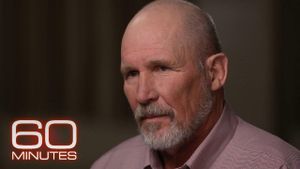On November 27, 2024, three American citizens who had been detained for years in China have finally been released as part of a notable prisoner exchange deal brokered by the Biden administration. This development marks not only relief for the families involved but also has significant diplomatic undertones as tensions between the U.S. and China have fluctuated over the past few years.
The Americans released are Mark Swidan, Kai Li, and John Leung, who all faced various charges during their detainment in China. According to the National Security Council (NSC), the three men are safely returning to the U.S. where they will be reunited with their families for the first time in many years.
Mark Swidan, now 48, had been detained since 2012 and faced the death penalty after being convicted of narcotics trafficking—a charge he has consistently denied. His case came under international scrutiny, with the U.S. State Department designat...ed him as wrongfully detained, expressing increasing concern over his health, especially as his family had feared he might attempt to take his own life due to the conditions he faced.
Kai Li, 62, from Long Island, New York, was arrested in 2016 on espionage charges. His family argued the charges were baseless and politically motivated. Reports have surfaced indicating he suffered significant health issues during his imprisonment, including having had a stroke. Prior to the swap, his son Harrison Li had been actively appealing to the government to secure his father’s release.
John Leung, aged 78, was sentenced to life imprisonment on espionage charges after being arrested in 2021. With longstanding ties to pro-Beijing groups, his case highlights the complications surrounding foreign nationals who might engage with both U.S. and Chinese interests.
The release of these individuals was part of a broader agreement which reportedly included the release of Xu Yanjun, 42, the first Chinese government intelligence officer extradited to the United States to face trial. Convicted for espionage and serving a 20-year sentence, Yanjun had been arrested following attempts to steal technology from American firms, including GE Aviation. The U.S. has not specified how many other Chinese citizens might have been released as part of this deal.
This exchange appears to be the culmination of several months of diplomatic negotiations, which included significant high-level conversations between President Biden and Chinese President Xi Jinping. Previously, National Security Advisor Jake Sullivan raised the concerns over the treatment of Americans incarcerated abroad during his meetings with Chinese officials.
After securing this swap, the Biden administration has touted it as a diplomatic success, especially noteworthy as it occurs within the last months of his presidency. The effort to secure the release of these detainees follows pleasingly on the heels of other recent successful negotiations as evidenced by the earlier release of American pastor David Lin, who was detained for over eighteen years.
Senate Majority Leader Chuck Schumer remarked on the significance of this moment for the families involved, noting, “For the families of those Americans newly freed by the Chinese government, this Thanksgiving there is so much to be thankful for.”
The timing of this news is relevant as it coincides with the Thanksgiving holiday, generating heightened emotional responses from families. Several families of other Americans still detained or prevented from leaving under investigation expressed hope this exchange might pave the way for future negotiations.
The State Department also lowered its travel advisory for China to Level 2, signaling “Exercise increased caution.” This advisory update reflects enhanced diplomatic ties and is partly influenced by the recently completed prisoners swap, which many see as indicative of improving bilateral relations between the two nations. This is significant as prior advisories had led to concerns about the safety of American nationals traveling to China.
Over the years, the U.S. has been involved with numerous high-stakes negotiations to secure the release of its citizens from various countries, including efforts over releases from Russia and Iran. So far, the Biden administration has successfully overseen the return of more than 70 Americans from various parts of the world, emphasizing the importance of engagement through diplomacy.
Human rights organizations, such as the Dui Hua Foundation, noted the persistent issue of wrongful detentions within China, often pointing out the lack of transparency within the Chinese judicial system. They estimate around 200 Americans are currently detained or unable to leave China due to legal complications. While the State Department records some cases as wrongful detentions, China refutes claims, insisting its legal processes meet international standards.
Family members of those still detained expressed gratitude for the returned Americans, but their voices remain poignantly tinged with concern for their loved ones still embroiled in uncertainty. The emotional toll weighs heavily; Harrison Li’s heart-wrenching testimony at congressional hearings sheds light on the dire conditions faced by people wrongfully imprisoned abroad.
This prisoner swap, bridging the gap of years apart for families, also spotlighted the complex dynamics of U.S.-China relations. Many analysts suggest it could signal thawing tensions—potentially opening the door for future discussions on related diplomatic issues, including trade and human rights policies.
While the specific outcomes and ramifications of this exchange remain to be seen, the return of these three Americans is certainly seen as joyous news for their families and loved ones, and it serves as yet another chapter illustrating the fragile intricacies of international negotiations.



